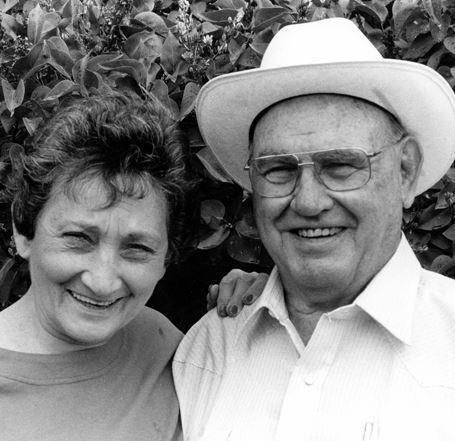
Photos, clippings, articles, and some ephemera from the life and career of Pete T. Cenarrusa, Idaho’s longest-serving public official.
Pete Cenarrusa Biographical
Pete Cenarrusa was born in Carey, Idaho, on December 16, 1917. His parents, Jose (Joe) Marie Zenarruzabeitia and Ramona Gardoqui, were immigrants from the Basque Country. They met and were married in Shoshone, Idaho, and established a successful sheep business based in Carey. They had five children all of whom were raised speaking Basque, later learning English in public school. Upon graduation from high school, Pete Cenarrusa attended to the University of Idaho, where he was a member of the University’s boxing team. He graduated with a bachelor’s degree in agriculture in 1940 and then moved to Cambridge, Idaho where he taught agricultural sciences and coached various sports. After the bombing of Pearl Harbor, Pete enlisted in the Navy, eventually becoming a Marine naval aviator and training other enlistees during World War II. He retired from the reserves as a major in 1963.
After the war Cenarrusa returned to his native south central Idaho and taught farming methods throughout Blaine County. During this time he was also a key figure in the building of Carey’s airport, which was dedicated by President Truman, who happened to be in Idaho at the time. Cenarrusa married Freda Coates in October 1947. They had one son, Joe. In 1949 he was persuaded to run for the House of Representatives, and won in 1950 running on the Republican ticket. While working as a legislator, Cenarrusa also helped operate his family’s sheep business in Carey. He was elected to his seat in the House for nine consecutive terms, and served as Speaker of the House from 1963-1967. In 1967, Governor Samuelson nominated Cenarrusa to finish the term of Secretary of State Edison Deal, who had died in office. Then Cenarrusa ran for and successfully won the position in the general election in 1970. He was reelected seven times, retiring in 2002. Among his many duties as Secretary of State, Cenarrusa served as a member of the State Land Board and was chief elections officer for the state of Idaho. Cenarrusa’s fifty-two years of service as legislator and Secretary of State makes him one of the longest-serving public officials in the United States.
Throughout his life Pete Cenarrusa was dedicated to promoting the Basque cause and helping Basque communities and immigrants. In 1970 he was influential in getting Generalissimo Francisco Franco to commute the death sentences of 16 Basque citizens accused of murdering a Spanish government official. Cenarrusa initiated three memorials in the Idaho State Legislature in support of Basque rights and autonomy, the first in 1972, with two others following in 2002 and 2006. Cenarrusa also worked to promote an end to all political violence within the Basque Country, as well as Basque education, helping in the establishment ikastolas, Basque preschools. In 2001, the Sabino Arana Foundation in the Basque Country honored Cenarrusa as a “Basque of the World.” Cenarrusa has promoted Basque culture within his home state, contributing both time and money to the various institutions, such as the Basque Museum and Cultural Center in Boise. In 2005, Cenarrusa formed the Cenarrusa Center for Basque Studies (now the Cenarrusa Foundation for Basque Culture). The Center has a program at Boise State University, where students can earn a Basque Studies minor. Pete Cenarrusa continues to work as a spokesperson for the Basque people and to end violence within the Basque Country.
Sketch by Olivia Umphrey, 2007